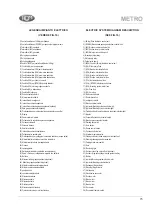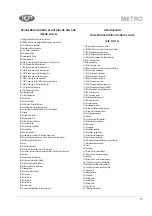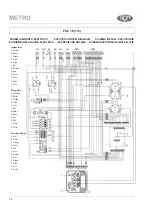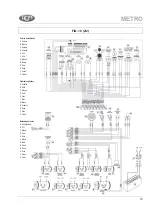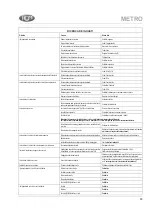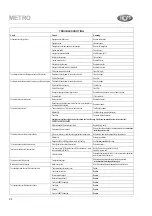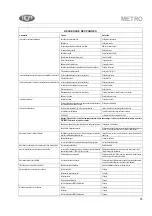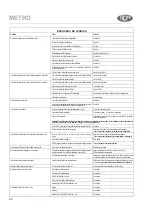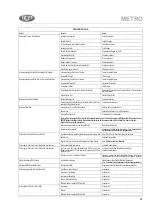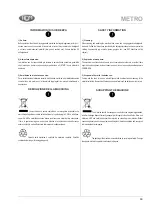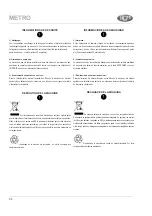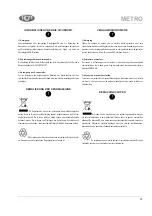
89
METRO
INFORMAZIONI DI SICUREZZA
1) Pulizia:
Nelle operazioni di pulizia e di lavaggio della macchina i detergenti aggressivi, acidi, ecc.,
devono essere usati con cautela. Attenersi alle istruzioni del produttore dei detergenti
e, nel caso, usare indumenti protettivi (tute, guanti, occhiali, ecc.). Vedere direttive CE
sull’argomento.
2) Atmosfera esplosiva:
La macchina non è stata costruita per lavorare in ambienti dove sussiste la possibilità
che vi siano gas, polveri o vapori esplosivi, pertanto ne è VIETATO l’uso in atmosfera
esplosiva.
3) Smaltimento di sostanze nocive:
Per lo smaltimento del materiale raccolto, dei
fi
ltri della macchina e del materiale esausto
come batterie, olio motore, ecc., attenersi alle leggi vigenti in materia di smaltimento e
depurazione.
DEMOLIZIONE DELLA MACCHINA
La macchina deve essere conferita ad un raccoglitore autorizzato che
provvederà alla gestione corretta dello smaltimento. In particolare gli oli, i filtri, e le batterie.
Le parti in ABS e metalliche possono essere reciclate come materie prime secondarie.
I tubi e le guarnizioni in gomma, nonché la plastica e la vetroresina comune dovranno
essere conferiti in modo differenziato alle imprese di nettezza urbana..
L’imballo della macchina è costituito da materiale riciclabile. Smaltirlo
conferendolo ai luoghi di riciclaggio appositi.
SAFETY INFORMATION
1) Cleaning:
When cleaning and washing the machine, take care when using aggressive detergents,
acids, etc. Follow the instructions provided by the detergent producer, and wear protective
clothing if appropriate (e.g. overalls, gloves, goggles, etc. - see EEC directives on this
subject).
2) Explosive atmosphere:
The machine is not constructed to work in environments where there is a risk that there
might be explosive gases, dusts or vapours, and so its use in an explosive atmosphere is
FORBIDDEN.
3) Disposal of harmful substances:
Comply with the laws in force on waste disposal and treatment when disposing of the
material collected, the machine
fi
lters and spend material such as batteries, motor oil, etc.
SCRAPPING THE MACHINE
The machine should be consigned to an authorised disposal organisation,
which will manage disposal correctly, especially with regard to the oil and
fl
uids,
fi
lters, and
batteries. ABS and metal parts should be recycled as secondary raw materials. Rubber
hoses and gaskets, and ordinary plastic and
fi
breglass, must be separated and consigned
to municipal waste companies.
The packing of the machine is manufactured by recycling materials. Consign
the spent materials to operators authorized to dispose.
Summary of Contents for 33.ME.003
Page 2: ...WWW RCM IT RCM ...
Page 3: ...3 METRO ...

